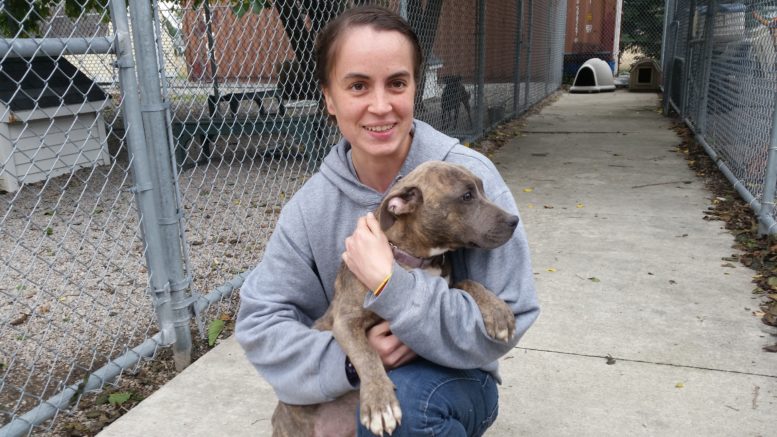The Wood County Humane Society will be closing temporarily from mid-March through early May to allow for the installation of new HVAC systems.
This project, which has been in the works for over a year, will involve the installation of three new, individual HVAC systems for the shelter, located at 801 Van Camp Road in Bowling Green. One system will be for the cat rooms, another will be for the dog kennels, and a third will be for non-animal areas.
The new HVAC systems are expected to significantly reduce exposure to airborne pathogens and to reduce annual utility expenditures by roughly 20%.
The existing HVAC system at the shelter is original to the building, dating to the mid-1980s. According to Building & Grounds Chair John Aleksander, the current system no longer meets the building code and is extremely inefficient. Aleksander also noted that due to the age of the system, replacement parts are very difficult to locate.
The current renovation project also involves the installation of new duct work throughout the building, new LED lighting fixtures and dimming light switches, new ceiling grid and tile, new electrical panel in garage, emergency lighting, motion sensors, a sound reduction wall above the ceiling in specific areas, and a secure roof access ladder on the outside of the building.
During the period of temporary closure, WCHS will be operating from a satellite location and will provide limited services to the community. Animal intake will be limited during this time given that the organization will be relying on fosters and adoptions to house animals needing a home.
Other services that will continue to be available during the temporary closure include: responding to calls of animal cruelty, neglect, and abandonment; requests for pet food/community cat food assistance.
To stay up-to-date with what’s happening at WCHS, follow the organization on Facebook (wchsohio) or visit its website (wchumane.org).
Wood County Humane Society, located in Bowling Green, Ohio, is a private, non-profit, managed admission shelter providing care for homeless and abused or neglected pets. The organization receives no funding from national humane organizations for daily operations, instead relying on earned revenue and the generosity of individual donors and businesses to fund programs such as Humane Investigations, Safe Pets, food assistance programs, low-cost spay/neuter opportunities, and educational presentations. The WCHS provides care for over 1,000 animals each year—from dogs and cats, to the occasional pocket pet or farm animal. All animals admitted into the adoption program are housed and cared for as long as it takes to find their adoptive home.

